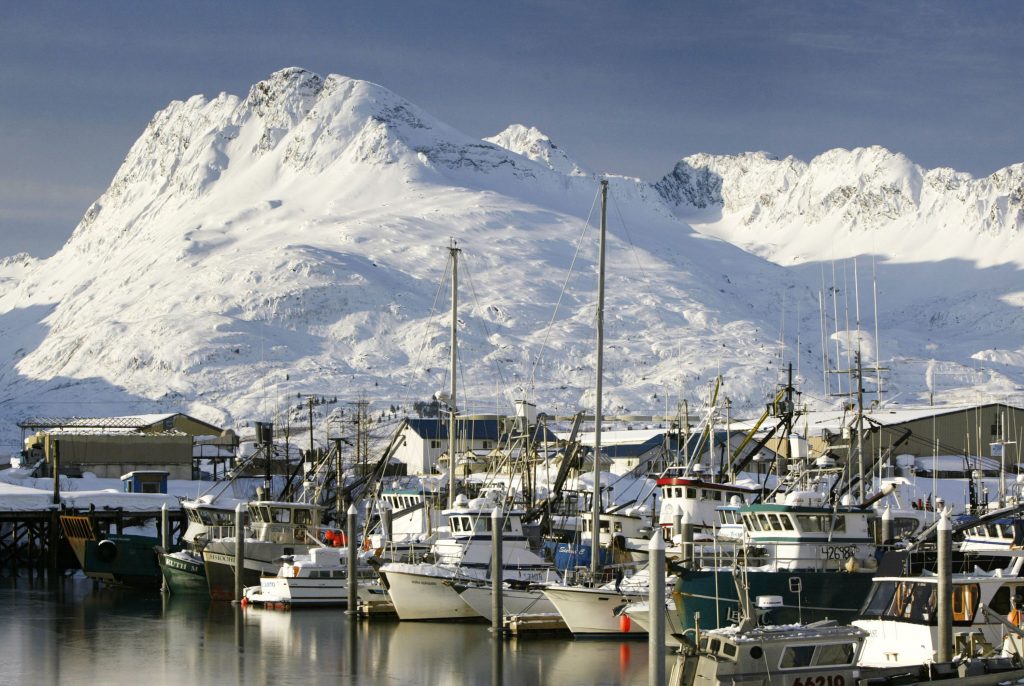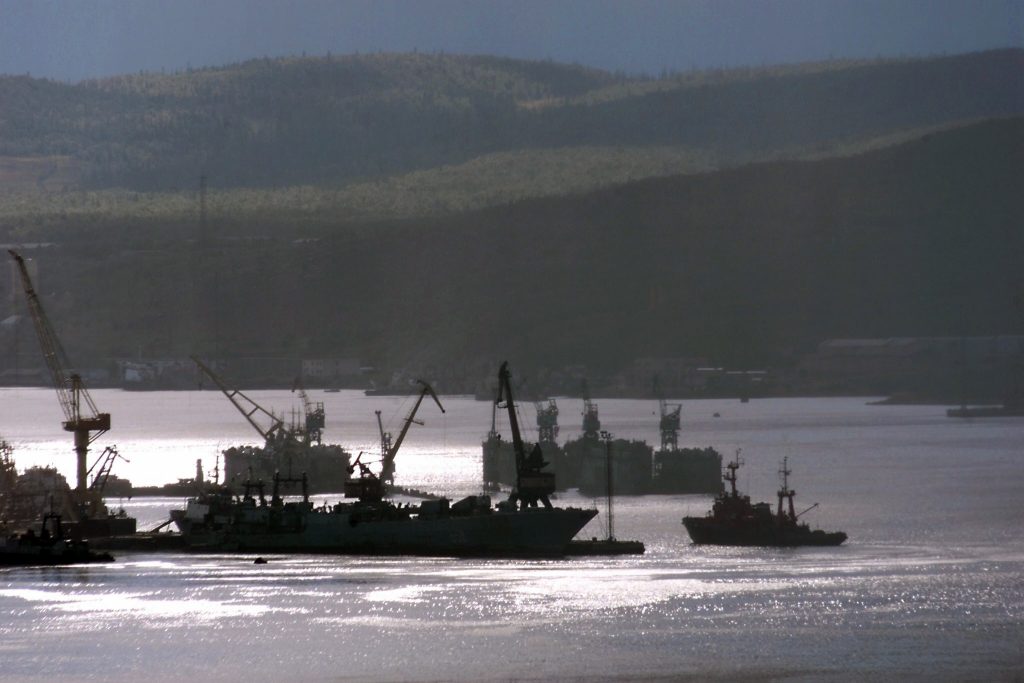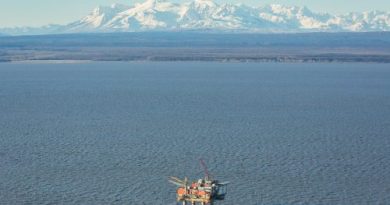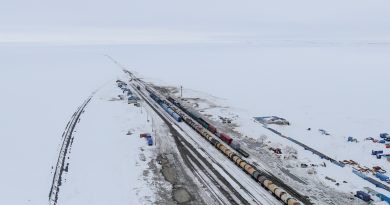U.S. officials optimistic about Arctic fishery agreement

As melting Arctic sea ice is set for another record retreat this summer, U.S. officials are optimistic that Arctic states and the world’s largest fishing nations will reach an agreement on preventing unregulated fishing in the planet’s last untapped marine environment.
Delegations from Canada, China, Denmark (representing the Faroe Islands and Greenland), the European Union, Iceland, Japan, South Korea, Norway, Russia and the United States met in Iqaluit, the capital of Canada’s Arctic territory of Nunavut from July 6 to 8 for the third round of talks on the future of the fishery in the central Arctic Ocean.
“Delegations made good progress in resolving differences of view on a number of the main issues under discussion,” said a statement released by the meeting chairman U.S. Ambassador David Balton. “There was a general belief that these discussions have the possibility of concluding successfully in the near future.”
Interim measures
The meeting in Iqaluit followed previous talks that took place late last year and in April 2016 in Washington, D.C.
It also sought to build on a declaration signed last summer in Oslo, when Canada, Denmark/Greenland, Norway, Russia and the United States promised that their fishing vessels will stay out of a 2.84-million-square-kilometre (1.1 million-square-mile) zone in the central Arctic Ocean, an area bigger than the Mediterranean Sea, until there has been more scientific research done in the region to gauge fish stocks and the general health of the marine environment.
At the close-door Iqaluit meeting, all delegations reaffirmed their commitment to take interim measures to prevent unregulated commercial high seas fishing in the central Arctic Ocean, said the chairman’s statement.
These interim measures are very similar to the five-party declaration that was signed in Oslo last year, said a State Department official, speaking to Eye on the Arctic on background.
“The idea with the interim measure is that parties to the agreement would agree not to authorize fishing vessels that are flying their flags to fish in the high seas portion of the central Arctic Ocean until such time that there would be a regional fishery management organization or some type of regional fishery management agreement in place to make sure that any commercial fishing that would happen there would be done using the best available science and modern day management standards,” the official said.
Regional fisheries management for the Arctic

For the moment the vast majority of the Arctic Ocean, which is still covered in ice for most of the year making it inaccessible for fishing fleets, doesn’t have a regional fishery management body that would regulate commercial fishing in those waters.
“Portions of the high seas area are becoming exposed during the summer and we see that portion being exposed in the summer growing over time,” the State Department official said. “So it’s reasonable to imagine that in the foreseeable future there might be enough open area that there could be a growing interest in fishing there.”
All of the participants of the Iqaluit meeting agreed that it’s “a good measure” to prevent unregulated fishing in these rapidly expanding ice-free areas, the official said.
There is also a general agreement that at some point in the future – it’s not known exactly when – there is a reasonable possibility that there will need to be a regional fisheries management organization or arrangement, the official said.
The delegates also agreed that there is a big gap in our scientific understanding of the issues facing the entire ecosystem in the central Arctic Ocean and there is a need to cooperate to improve that scientific understanding.
Sticking points

What the participants disagreed on was whether the agreement that the parties are working on is going to be legally binding or not, the official said.
The U.S. is pushing for a legally binding document, the official said, a view supported by “the vast majority” of countries without elaborating, which governments oppose the idea of a legally binding treaty.
The other sticking point is how to deal with exploratory fishing to identify and understand the availability of commercial fish stocks in the region, the official said.
“We also have some work to do on what is the way that we make decisions as a group that might eventually sign such an agreement,” the official said. “Is it by consensus? Is by vote? Is it majority or supermajority?”
There is also no clear agreement on what’s the tipping point or the trigger that would compel the signatories to start negotiating the creation of a regional fisheries management organization, the official said.
‘Good cooperative spirit’
“There are a variety of views on that topic but I feel there is a good cooperative spirit among the members, and people are looking at ways that we can find common ground on these topics,” the State Department official said.
The participating countries have until the middle of September to submit their amendments to a chairman’s draft document that all the delegations have been working on.
“The next step after that is to hopefully sit down and work through the remaining issues when we would meet again, hopefully sometime in the late fall,” the official said.
That meeting will most likely be hosted by Denmark.
Related stories from around the North:
Canada: Is a fishing boom in the Arctic a sure thing?, Eye on the Arctic
Finland: EU drops seal-protection complaint against Finland, Yle News
Greenland: The donut hole at the centre of the Arctic Ocean, Blog by Mia Bennett
Norway: Climate change will lead to ecosystem clash, Barents Observer
Sweden: Record numbers for Swedish wild salmon, Radio Sweden
Russia: Oryong 501 sinking highlights Arctic fishing, shipping issues, Blog by Mia Bennett
United States: Ice retreat threatening Bering Sea pollock, Alaska Public Radio Network



